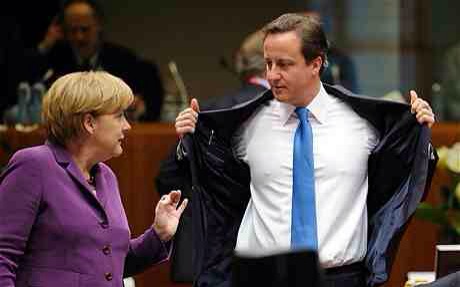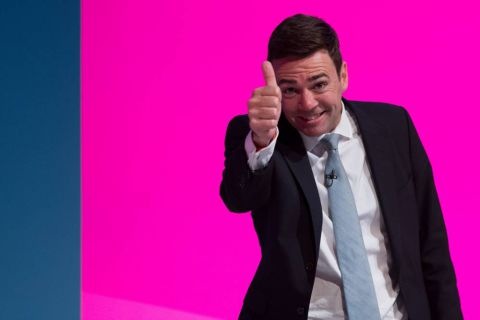The Chancellor of the Exchequer’s first fully Conservative budget was a chance for him to play a few political games, to steal some ideas and to revise the approach that he pretended to take in his Autumn Statement 2014, and his final Budget of the last Parliament in March. He had, for example, been expecting to cut hard, and then vastly increasing public spending in 2019/2020 to compensate. The OBR called it “a roller coaster” at the time, and it was suspected that it was a final dig at the Lib Dems and Labour to match the Tories’ fiscal responsibility in the run-up to the General Election. All that being out of the way, we had a first glance at what this Parliament will yield for us all.
Here follows a summary of the announcements and measures introduced in the budget, and what they mean for you.
- Growth in 2014 revised up to 3%, from the 2.6% that was previously forecast
- A well-written budget speech, containing references to Greece, the gift that keeps on giving for the Chancellor. A lot of the PM’s one-nation rhetoric employed, with Osborne calling it a “Big budget for a country with big ambitions”, and chiding Labour by suggesting that “Britain has… Left the age of irresponsibility behind”
- He announced a “Smoother” approach to cuts, and is now planning to end austerity a year later than planned, predicting a surplus by 2019/20 instead of 2018/19.
- He is also proposing to enshrine in law a measure to ensure that Governments always run budget surpluses during times of economic stability. This is a purely political move to draw out Labour and expose them to some ridicule; although they should vote against this restrictive legislation, if they do they will be spun into a corner and look like they are against economic responsibility. The vote is in the autumn so we haven’t heard the last of this one.
- He has committed to fully funding the “Stevens Plan” (a report by the Head of NHS England as to the amount of money they will need in the immediate future), as long as the NHS can find nearly 20bn in “efficiency savings” (i.e Cuts).
- Changes to Non-Dom status mean that it will no longer be a hereditary privilege, and that after 15 years of residence in the UK it is removed. This is a blatant rip-off from Miliband’s Labour election campaign, ruthlessly re-branded as a staple of the Conservative diet.
- Public sector pay rises 1%PA FOR 4years (this doesn’t compensate for the losses these people will feel from changes to tax credits though, low and middle income families WILL be squeezed hard by this budget).
- £7.2Bn predicted to be raised by HMRC tackling tax avoidance, although God knows how they will actually achieve this; Chancellor has promised them nearly £1Bn in extra funding to do so.
- He had a massive, calculated dig at Boris Johnson, offering funding to fix the Battle of Britain HQ in his constituency of Uxbridge whilst mocking him for his floundering campaign to block a third runway at Heathrow airport, saying “let its renovation stand as a monument to… The days when aeroplanes flew freely over the skies of West London”
- Decreasing Bank Levy over next five years is a barely-veiled incentive to keep HSBC’s headquarters in London.
- Student finance- removing cap on student numbers. Maintenance Grant will turn into a loan from 2016/17 and be added to overall debt, increased to £8200 per year available to borrow for maintenance. Student fee cap linked to inflation for “those institutions who can ensure they have a high standard of teaching”, so £9000 is no longer the maximum you can expect to pay per year. (as a footnote, this is what happens when young people don’t vote, and all policy is targeted towards the older generations)
- Cuts to inheritance tax that had the Chancellor proclaiming “The left will never understand this”, funded by pension tax relief cut on those earning over £150,000 per year.
- Corporation tax cut again, from 20% to 18% by 2020, making the UK a magnet for the heavy burden of corporate influence.
- BBC will shoulder the burden of free TV Licences to over-75s (the first in a series of measures expected to “Cut down” the BBC’s link with the taxpayer)
- 18-21s obliged to “Earn or Learn” with a new Youth Obligation
- Abolishing automatic availability of housing benefit for 18-21 year olds.
- WRAG (work related activity group) will no longer be funded (aside from current claimants), and those who would have qualified will receive regular Jobseeker’s Allowance.
- Tax Credits- working age benefits frozen for 4 years. Cuts to working tax credits (the extent of which will be announced later). Child Tax credits capped after the second child from April 2017 (Unless you have twins!)
- “Joint security fund” between Intelligence services and MOD, £1.5Bn to help counter extremism and radicalisation
- The Chancellor finally, after much to-ing and fro-ing within the cabinet, committed to spending 2% of GDP on Defence, in order to meet a NATO target set by Mr Cameron last year. This is doubtless partially in response to the Tunisia attacks last week.
- The Tories have decided to raise the minimum wage for over 25-year olds, and call it a “Living Wage”. It will be compulsory, and should reach £9ph by 2020. This starts in April 2016 at £7.20ph, and is regulated by the low pay commission. The OBR suggest the effect on jobs will not be significant, with 60,000 fewer jobs as a result by 2020 (due to companies simply not being able to pay the wages). Small business national insurance contributions will be cut further to compensate, so that small companies can still compete.
Whether you like some of the measures in this budget or not (and it seems that there is literally something for everyone to love and hate), the Chancellor’s about-turn with regards to the pace of austerity marks an increase in projected spending from the Autumn Statement spending forecast of a cool £83Bn. Smoothing out the roller coaster nature of the plan has vastly changed the outlook for the immediate term.
What is clear, above all, from this budget is that the Tories will continue to heap our country’s woes on the backs of the young, and those who they deem “lazy” or “stagnant”, and continue to ease the burden for those who, in the round, vote Tory. The IFS has said this morning that 13 Million families in the UK will lose an average of £260 a year as a result of the tax credit freeze, and that that may well end up being a disincentive to work. It remains to be seen how many of these policies actually happen, but it is a stark reminder of how an ideological lunge to the right has gripped our politics since the departure of Liberal voices from the cabinet table.









